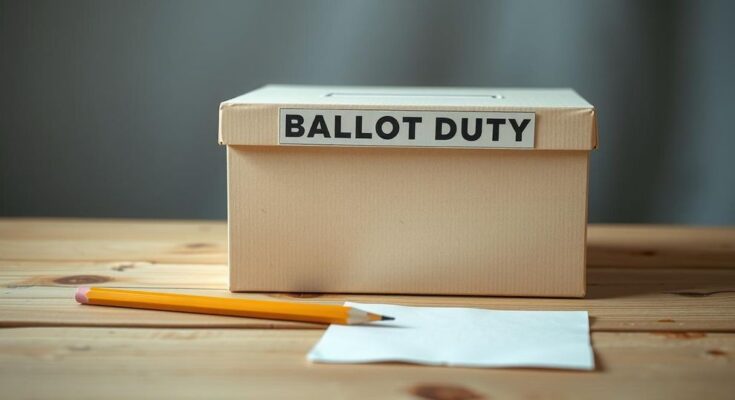Ecuador’s general election polls have closed, with results pending. Incumbent Daniel Noboa faces Luisa González in a contest influenced by critical issues such as crime, economics, and social inequalities. The election will reveal if citizens support Noboa’s strict measures or favor González’s alternative approach. If no candidate secures the required votes, a runoff is expected in April.
Ecuador has concluded its general election polls, with counting currently underway. Sixteen candidates are competing for the presidency, including incumbent Daniel Noboa and his principal challenger, Luisa González. According to Ecuadorian law, a candidate must secure over 50% of the votes to win outright, or at least 40% with a 10-point lead over the nearest competitor. Should these criteria remain unmet, a runoff election will take place, currently slated for April 13.
The outcome of the election will determine whether Ecuadorians continue to support Noboa’s stringent measures against crime or choose an alternative in González. Noboa, who assumed office after winning the 2023 snap election, has navigated a series of crises involving heightened gang violence. In response, he has declared multiple states of emergency and deployed military units in efforts to curb criminal activities, alongside initiating construction of a new maximum-security prison following a notable escape incident.
González, who placed second in the earlier election, is closely aligned with former leftist President Rafael Correa, a pivotal figure in Ecuadorian politics. She campaigns under the slogan “Revive Ecuador,” asserting her dedication to combating drug trafficking with as much vigor as Noboa. The new administration’s primary challenges will include addressing security concerns, economic stability, managing a nationwide energy crisis, and navigating international relations.
Analyst Santiago Basabe from the Universidad San Francisco de Quito remarked, “Security is the biggest problem the government has had, but in a country with huge social inequalities like Ecuador, I believe that among the priorities of the less advantaged sectors are, in addition to security, health and education.”
Ecuador is presently facing significant political questions regarding leadership and governance, amid a backdrop of escalating crime and economic challenges. The country has held elections to determine whether to maintain the status quo with the current president or shift to a new leadership style. The complexities of issues such as security, healthcare, and education remain at the forefront of concerns for Ecuadorians, particularly those in lower socioeconomic strata.
In conclusion, the Ecuadorian general election serves as a critical juncture for the nation. Voters are determining whether to continue with President Noboa’s firm anti-crime policies or to support González, who proposes alternative strategies. The election outcome will have profound implications for the country’s security, economic prospects, and social welfare in the coming months.
Original Source: www.cnn.com




